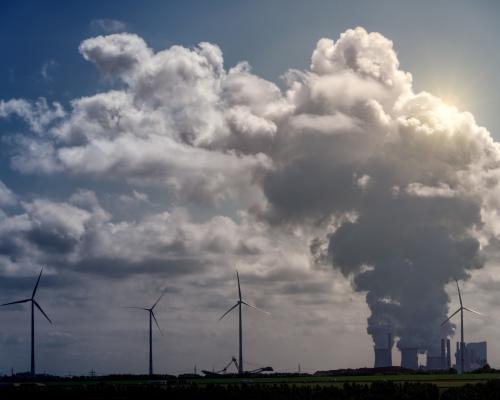
New Regulations on Carbon Footprint in the European Union

In a continuous effort to combat climate change, the European Union has implemented a series of rigorous regulations aimed at reducing companies' carbon footprints.
These regulations not only set new standards for the measurement and reporting of emissions but also impose strict deadlines and significant penalties for non-compliance.
This article breaks down the most important changes and offers practical recommendations for companies to prepare and comply with these new regulations.
Overview of the New Regulations
In December 2019, the European Commission presented the European Green Deal, a roadmap with actions to promote the efficient use of resources through the transition to a clean and circular economy, restore biodiversity, and reduce pollution.
A key piece of this plan is the “Taxonomy Regulation” which establishes criteria to determine whether an economic activity is environmentally sustainable.
In addition, the EU Emissions Trading System (EU ETS), which is already the largest carbon market in the world, has been revised to include additional sectors and tighten emission limits.
The recent inclusion of the maritime sector and the plan to include road transport and buildings in the coming years are examples of these revisions.
Obligations for Companies
Companies are now required to measure and report their greenhouse gas emissions with greater accuracy and frequency. This includes:
- Detailed Annual Reports: Companies must submit detailed reports on their direct and indirect emissions.
- Impact Assessments: Assess and document the environmental impact of their operations and products.
- Reduction Plans: Develop and follow specific action plans to reduce emissions.
Deadlines and Schedule
The regulations set a clear schedule for implementation:
- 2024: Large companies must start reporting their emissions under the new taxonomy system.
- 2025: Obligations extend to small and medium-sized enterprises.
- 2026 and beyond: Gradual implementation of new rules for additional sectors and possible revisions based on technological and scientific advances.
Penalties and Consequences
Non-compliance with these regulations can result in severe penalties. Fines can be significant, and in some cases, companies may face operational restrictions.
Moreover, non-compliance can severely damage corporate reputation and the trust of investors and consumers.
Recommendations
To comply with the new regulations, companies are recommended to:
- Conduct Internal Audits: Assess the current state of emissions and sustainability practices.
- Implement Monitoring Technologies: Use advanced technologies for accurate emissions measurement.
- Develop Reduction Strategies: Create detailed plans to reduce emissions in line with EU objectives.
- Train Staff: Ensure that employees understand the new regulations and know how to comply with them.
- Collaborate with Experts: Consult with sustainability and regulatory experts to develop and implement effective strategies.
The new regulations of the European Union represent a significant change in how companies must address their environmental impact. While the requirements may seem challenging, they also offer an opportunity to innovate and lead in sustainability.
The Value Contribution of Xofia
In this context of increasing regulatory rigor and technological advances, Xofia positions itself as a strategic ally for companies seeking to measure and mitigate their carbon footprint effectively.
Our platform leverages technological innovations to offer precise and transparent solutions, ensuring that companies not only comply with the stringent regulations of the European Union but also optimize their processes and reduce operational costs.
With the support of Xofia, organizations can confidently face environmental challenges and strengthen their reputation in sustainability.
References
European Commission, "The European Green Deal."
ec.europa.eu/info/strategy/priorities-2019-2024/european-green-deal_en
European Commission, "EU Emissions Trading System
https://ec.europa.eu/clima/eu-action/eu-emissions-trading-system-eu-ets_en
Regulation (EU) 2020/852 of the European Parliament and of the Council, "Establishing a framework to facilitate sustainable investment." Official Journal of the European Union, 2020.
eur-lex.europa.eu/EN/legal-content/summary/assessing-environmentally-sustainable-investments.html
European Environment Agency, "Monitoring, reporting and verification of greenhouse gas emissions."
www.eea.europa.eu/publications/transport-increasing-oil-consumption-and
European Council , “Fit for 55”
www.consilium.europa.eu/en/policies/green-deal/fit-for-55/
Deloitte, “Sustainability regulation outlook 2024”
www2.deloitte.com/us/en/insights/environmental-social-governance/sustainability-regulation-outlook.html



